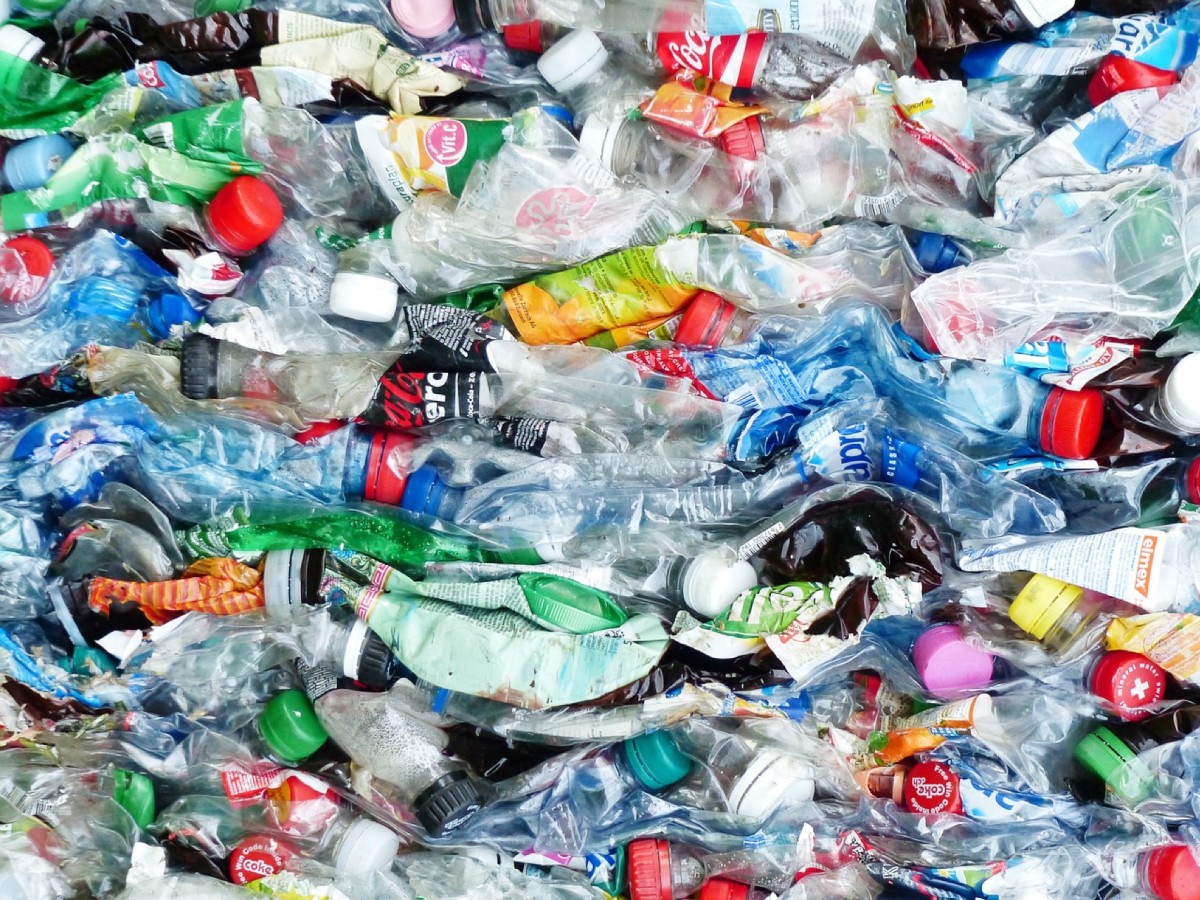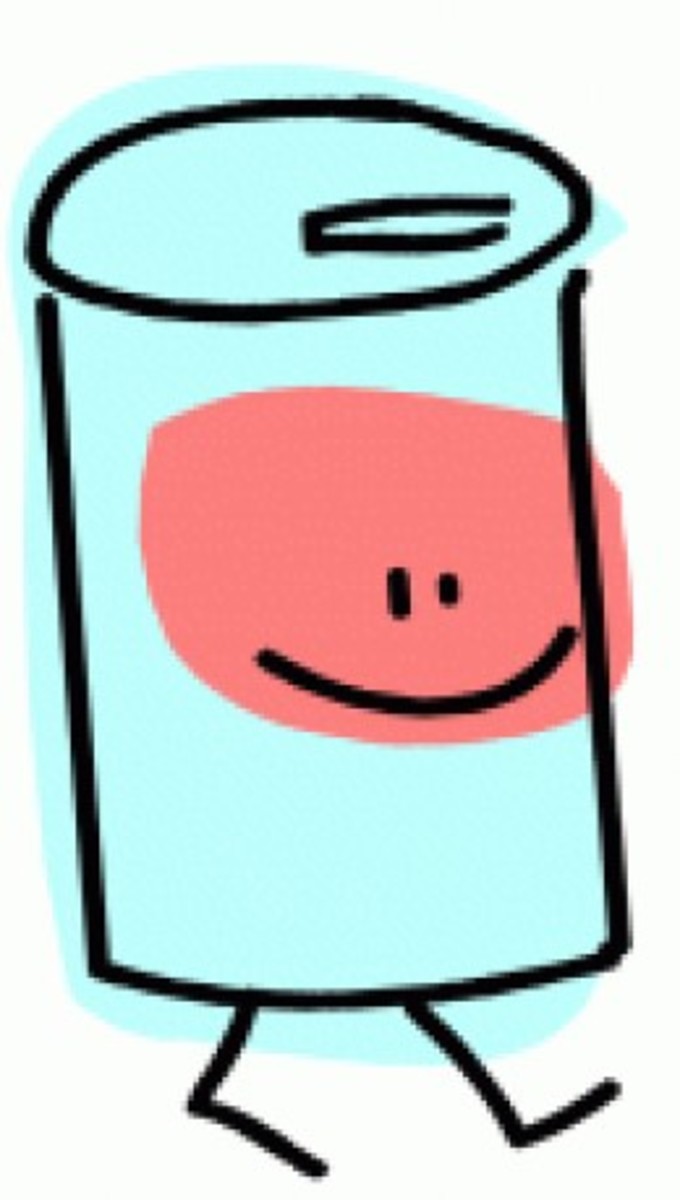Waste Disposal Has Become a Pain
Dumping the Trash: Out of Sight, Out of Mind
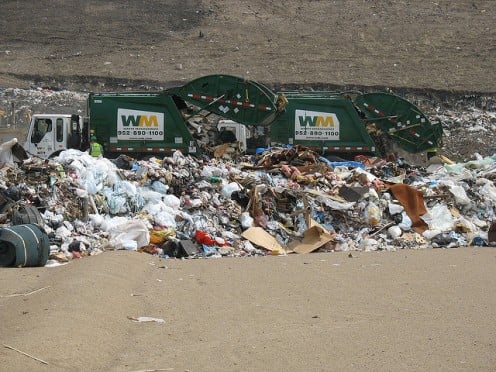
New Waste Handling Laws
Here in the USA, there are a good many laws of fairly recent enactment re-defining waste into a number of new categories. We no longer have garbage. We have waste. Waste is big business. Garbage (or trash, if you prefer) just gets dumped; waste must be sorted.
While industry may be responsible for the lion's share of producing the quantities and kinds of waste resulting in all the newly-invented categories, the onus of following these cumbersome laws is also foisted upon us "little guys," i.e., the lowly homeowners and renters.
There is a single main reason given for this new set of laws: "The Environment."
Now, I'm as "green" as anyone: I do believe in careful resource management and proper disposal of trash. I recycled and brought my own bags to the store long before it was 'cool' or mandatory.
However, I also believe this concept of "green" everything has become a bit of a trite and overused term. It is becoming downright annoying, and as a result, the term has become diluted. Everyone tries to hop on the 'green' bandwagon, including industries to which it does not really apply. What next? 'Green' cows? (Speaking of one of the major polluters, few are as bad as the cattle farms!)
All the Categories (Well, Most of Them)
Instead of trash or garbage, we now have waste, divided up as follows:
Things they will pick up:
- green waste, which means lawn and garden trimmings, and probably fruit peels, and other items that are compostable.
- recyclables (anything from cardboard to glass bottles, newspaper, tin cans, and plastic jars--the exact items accepted vary greatly from city to city).
- general trash (such as kitchen waste, and other things we used to simply call garbage).
Things they won’t pick up:
- hazardous materials (this includes paint--even water-based latex paint, assorted household chemicals--anything from furniture polish, window-cleaners, bleach, insecticides, garden or pool chemicals and the like)
- E-Waste: this is the newest terminology and category; it deals with any electronic gadget from dead cell phones to TV’s, computers and monitors, keyboards, fax machines, etc.
- F.O.G. (Fats, Oils, and Grease-generally leftovers from cooking)
- Automotive fluids (old gas drained from a vehicle or gas-powered yard tool, motor oil, transmission fluid, anti-freeze, brake fluid, and so forth)
And here's a new one they've added recently--it's now illegal to dispose of household batteries in the trash. They've been classified as "hazardous waste."
Oh, really? And who are the 'battery police' who are going to go through all the bags of garbage loaded with coffee grounds, spoiled food, and the scrapings from kitty litter boxes, to find out if there are batteries in the trash?
When is it Picked Up, and How?
Well, just for fun, and to make things completely confusing and unnecessarily difficult, all of these regulations vary by state, and even city by city!
In our city, bins are supplied for all three main categories: garbage, recycling, and yard waste, and they will drop off, on request, a container for recycling motor oil and oil filters. Not all towns do.
I have to wonder how much the environment is actually being helped by two additional trash pick up vehicles now driving each route: the original “garbage truck,” and the two additional ones for recyclables and for yard trimmings.
Most areas serviced by a disposal company have weekly pickups, and that is fine. Well, it would be fine, if everything was picked up every week. Here again, there is wide variation city-by-city. Where I live, the recycling and "normal garbage" is picked up weekly. Great.
However, the yard waste is picked up only on alternate weeks. That may be fine for tract homes, but the area where we live is semi-rural, with larger lots; twice a month is just not enough in summer and fall....it's crazy.
But, go a mile away, to where my daughter lives (in a tract home less than a mile away. but in another town), and their yard waste is picked up every week, but the recycling only on alternate weeks. It is backwards to the need in both cases.
What is picked up in the recycling? Again, it depends. My daughter's town takes pretty much anything...the usual cans, bottles, plastic, cardboard, but also broken kitchen appliances and torn, discarded clothing and shoes, broken toys, and so on.
In our city, we can only recycle cardboard, (but no pizza boxes or other cardboard 'contaminated' with food residue), glass, (but not broken window glass), metal cans and plastic (but only food and other plastic containers such as cat litter buckets, empty cleaning products, etc., but, no broken toys or Styrofoam). Loose scrap metal, must be taken to the scrap yard, but they only buy aluminum—they will charge you to dump steel.
There are many items marked with a recycle symbol that are not accepted by our waste disposal company! That is another problem—if the material is recyclable, then any disposal company claiming to have and operate a recycling program needs to accept said material, or the entire concept is bogus.
This inconsistency between cities and different disposal companies is a big problem that needs to be addressed in the laws that put the programs into place to start with.
It seems to this author that since recycling is mandated by law, then waste management companies must also be mandated to pick up any and all items deemed recyclable by these laws!
Is It Recyclable?
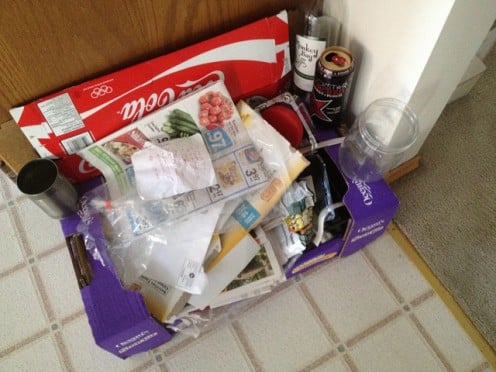
The Sorting and Disposal Processes
Now that we know what all the categories are, we are put upon to sort them all out ourselves into nice tidy piles or bins for storage and eventual transport or pick-up.
Therein lie the problems. Some of the items will be picked up by the local waste disposal company. (Remember when we just called them "garbage men?") These items usually include the household recyclables mentioned above, the normal "always-was-garbage" food waste, and the yard trimmings.
And those household batteries? Well, how many really get used up and tossed out in any given day, week or month? We are supposed to store them in some kind of container until there is a reasonable amount (for us!) to take to the collection facility? I'm not going to spend the gas to drive there for 1 or 2 batteries; and I'm not going to store them until I have a bag full, either--that could take years--during which time, they are likely to leak their chemicals and become even more hazardous--no, I don't want them hanging around my home!
Aside from the bins provided by the trash pickup..oh, pardon me: waste disposal company; there are all the categories of items they won't accept. These include almost every category from the first section, as well as larger things that we've always had to haul to the dumps ourselves, such as dead refrigerators, furniture, mattresses, and construction waste from building or remodeling projects.
Storage Space Needed
The waste companies are also perfectly happy to take aluminum cans from soft drinks and beer; soda bottles, and glass beverage bottles. Hold the phone, however—those are the items on which I have paid a “California Redemption Value” added fee (and many other states have similar fees).
If I recycle those myself, I get at least part of that money back—not so if I dump it into the general waste pickup recycle containers. That means three additional bins in my yard to separate the money-back recycling from the trash pickup recyclables. Why? Because the money-back recycling plant wants the items pre-sorted into plastic, metal, and glass! (I'm at least thankful that it's now just generically glass; we used to have to also sort glass by color!)
Glass Often Must Be Sorted by Color
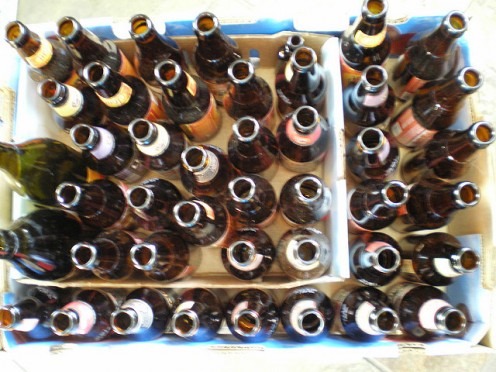
The Hazmat Stuff
Sorting and storing all these myriad categories of "special waste" takes up a lot of space. Most people don't have that much.
Who wants their garage full of buckets of used motor oil, waiting for a chance to take it to a drop-off station. You used to just be able to take oil to the local gas station, where they did your oil change. That was back when they were called "service stations," because they actually provided services. Now, they have no service bays, and you pump your own gas. Service has gone the way of the dinosaurs.
The places that now specialize in doing oil changes, charge a lot of money for a simple oil change--and this includes an "environmental disposal fee." If you are a do-it-yourselfer, and just bring them your bucket of oil, they're going to charge you a fee. Some will charge you more than the amount tacked on if they had done the oil change.
Or, you can bring it to a special-collection location. The same is true of other hazmat waste such as old paint, paint thinner, bug killer, and other hazardous items. No one, however, wants to leave these things sitting around in the garage or house--they are fire and health hazards.
You're not allowed to dump them on the ground or down the storm drains, or into the toilet, either. I don't have a problem with that. All of those means of disposal are harmful to the environment in one way or another. At least our local company will pick up the used motor oil, if you have called them for one of the special collection containers mentioned earlier.
But the other items? No, you are no longer allowed to put those in the general household trash bin.
Inconvenient to Comply
There is a problem with the availability of the hazmat collection sites. The days of the week and hours that the collection facilities are open for dropping off this waste are short hours on few days.
This makes it nearly impossible to arrange a time to get there, especially for folks who work all week, as many of the scheduled hours are in the middle of the week! Hence, the dangerous stuff continues to sit around your house. As if the hours are not inconvenient enough, the law places limits on how much "hazardous material" you are allowed to transport at one time in your private vehicle.
It is rather a catch-22 situation: you stockpile the stuff at home until you have enough to be worth the trip, and re-arrange your schedule to get there. Oh, but don't have too much, or you'll have to drive all the way home and back again, making two trips, even if it all would have fit in one, and that costs money at the gas pump!
The problem with storage is multiplied many times for apartment dwellers who may not even have garage space, or may not be allowed to have anything in the garage but their car.
That Pesky "E-Waste" and Other Problem Things
So--your computer died? You have an old, discarded cell phone that doesn't work so well anymore? You can't toss them into the trash to end up in the landfill. Nope, we don't do that anymore. We must take them to an e-waste collection facility.
Sometimes, these are separate facilities; sometimes electronics stores will accept 'dead' electronics; other times, it is just a separate section at the transfer station.
Transfer station? That's the “newspeak” term for what we used to just call "the dumps." The trouble with having to take things to the dumps is, they charge a fee: an outrageous fee! No, make that fees, plural!
Our local "transfer station" charges a minimum of $25.00 for a pickup truck load. It doesn't even have to be a full load--it could be a single item, such as an old broken-up workbench. No matter--$25.00! Remember--that's the minimum charge! If you have a really stuffed-full load, they'll charge you much more.
If you do have anything electronic, such as an old microwave oven, computer, TV set, etc. you are going to pay an additional $25.00 each for those items! If you should have a mattress, other furniture, or refrigerator, you are going to pay an additional $25.00 to $40.00 each to dispose of those items!
These are tough economic times--most of us don't have that kind of extra change lying around, but if the waste company won't pick it up, what are we to do? Turn our backyards into trash dumps? That is not an acceptable alternative at all, either from an aesthetic standpoint, or for health and safety reasons.
We are being sent mixed messages. There are laws stating that the input to landfills must be reduced by half, and all these mandated recycling and special-purpose disposal programs have been put into place, but then, they don't make them convenient, and they charge so much money that folks can't afford to comply.
No wonder you see all that discarded stuff along our roadways....it's called "midnight dumping," and is becoming an increasing problem across the state and the nation.
These laws need to be amended, so that if they are going to be forced upon us, then putting it into practice must be both convenient and either free, or have very low cost fees so it is affordable for all.
Midnight Dumping Is an Increasing Problem Caused by High Dump Fees
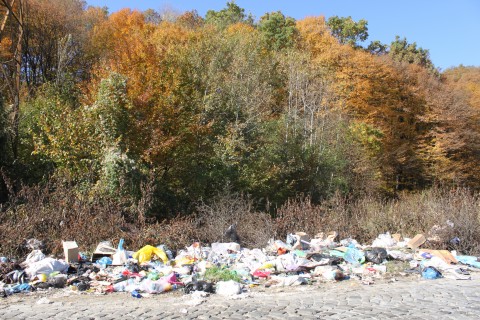
© 2011 Liz Elias

